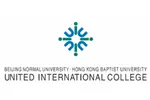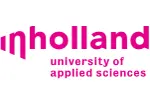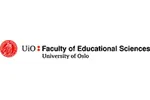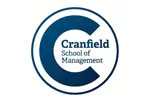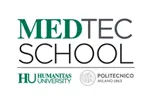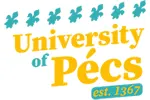The Globalisation and Development (GAD) Programme is a new, dynamic educational platform at the English-medium “United International College” of Beijing Normal University and Hong Kong Baptist University (BNU-HKBU UIC) in Zhuhai, Guangdong Province, China.
The college is housed in the green, seaside town of Zhuhai, in the Pearl River Delta, adjacent to Macau and conveniently connected to Hong Kong by a recently completed bridge, widely considered a marvel of human engineering, at the heart of the booming “Greater Bay Area” region.
The GAD Programme – leading to a Bachelor of Social Sciences (Honors) issued by Hong Kong Baptist University – is uniquely interdisciplinary, as it infuses modern international affairs studies with highly relevant “STEM” components.
It trains future governance leaders with a distinctive international perspective and solid digital skills, capable of managing the complex, interconnected, transnational development challenges of our times on behalf of public administrations, private corporations, international organisations, think tanks and media.
The added value of studying in GAD is represented by its location in one of most vibrant and fast-growing regions in the world, in a country, China, that has been defining our times by leading the rise of the Global South and coming to represent the epitome of large-scale development, trade integration and global outreach.
GAD is a truly cutting-edge platform that aims at expanding horizons, crossing boundaries and making sense of the most pressing trends in international affairs, economic development governance, sustainability, as well as regional and multilateral cooperation. The courses available in the major include:
MAJOR REQUIRED (CORE) COURSES
- Introduction to Global Studies
- International Cooperation
- Foundations of Political Science
- Introduction to Sustainable Development
- Introduction to Research Methods
- Principles of Development Economics
- Python Programming for Beginners (computer-based /in collaboration with the Division of Science and Technology)
- Cooperation and Progress in the Guangdong-HK-Macau Greater Bay Area
- Global Digital Transformation: AI, IoT and Blockchain (computer-based /in collaboration with the Division of Science and Technology)
- Global Environmental Governance
- Global Political Economy
- Global Routes of Trade and Investment
- Globalisation: Trends, Issues and Opportunities
- Growth, Innovation and Development: Case Studies
- Introduction to Geographic Information Systems for Environmental Management (computer-based /in collaboration with the Division of Science and Technology)
- Data Analysis for Social Sciences (computer-based)
- Final Year Project
In addition, from Year 3 onwards students will be able to define their own educational path on the basis of their interests and aspirations by choosing between two alternative concentrations, in “International Development” or in “Public Administration”:
OPTION 1 - International Development Concentration Required Courses
- China’s Global Partnerships for Shared Prosperity
- Global South in Transition
- International Development Theory and Practice
- International Organisations
- Project Management in International Development
OPTION 2 - Public Administration Concentration Required Courses
- Employment and Tax Policy for Digital Economy
- Public Administration for the Digital Society
- Public Fiscal Administration
- Public-Private Partnerships
- Social Innovation and Social Enterprises
Concentration Elective Courses include:
- Asia in the Age of Globalisation
- Contemporary Europe-Asia Interactions
- Development in Eastern Europe and Central Asia
- Development in Post-Colonial British Commonwealth
- Governance and Society in Latin America
- Governance and Society in North America
- Governance and Society in Northeast Asia
- International Migration
- Internship
- Principles of International Law
- Principles of Negotiation
- Regional Cooperation and Integration: the ASEAN
- Rural Economic Development and Transformation in Globalising China
- Society, Environment and Development in Africa
- Sustainable Cities
- Topics in Globalisation and Development
Classes tend to be relatively small (30-40 students maximum), ensuring meaningful exposure and effective interaction. High-quality teaching is proven by a consistently high percentage of graduates (above 60%) pursuing Master’s and PhD degrees after graduation in the most prestigious English speaking universities in the world (e.g. QS Top 100).
For more information on how to join us and thus multiply your opportunity for success in the world of tomorrow, please visit our institutional website at https://fhss.uic.edu.cn/gad_en/ and get in touch with us!
You can also check the News and Events section on our official website to know more about students life in GAD at https://fhss.uic.edu.cn/gad_en/news_events.htm!
Our international, English-speaking staff will be delighted to assist you. You may also contact the college’s International Development Office – in charge of international students – by visiting https://ido.uic.edu.cn/!


